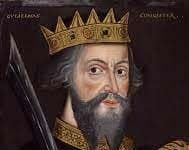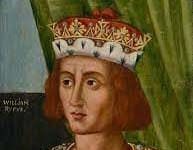Empedocles | Brief Biography
Empedocles | Brief Biography
Empedocles was a Greek philosopher and writer who lived from approximately 492-432 BCE. He was born in the Greek city of Acragas, now known as Agrigento, in Sicily. He is considered one of the last of the pre-Socratic philosophers and is known for his ideas on natural philosophy, particularly his theory of the four classical elements: earth, air, fire, and water.
Empedocles is also known for his theory of the cyclical evolution of the universe, which he believed was driven by the forces of love and strife. According to Empedocles, the universe was composed of the four classical elements, which were constantly being mixed and separated by the forces of love and strife. This process was believed to drive the universe through cycles of creation and destruction.
Empedocles was also a proponent of the idea of reincarnation, believing that the soul was immortal and that it could be reincarnated into different bodies over time. He believed that the soul was made up of fire and that it was responsible for conscious thought and emotion. He also believed that the soul was capable of experiencing pleasure and pain, which was a result of the forces of love and strife.
Empedocles is also known for his poem, “Purifications,” which is a philosophical work that outlines his ideas on natural philosophy and morality. The poem is written in hexameter verse and is considered one of the earliest works of Greek literature. It is also considered to be a major source of information on Empedocles’ philosophical views and is considered one of the few primary sources of information on pre-Socratic philosophy.
In addition to his philosophical contributions, Empedocles was also a respected physician and is said to have used his knowledge of medicine to help cure a plague that struck Sicily in his lifetime. He was also known for his political involvement and is said to have been a passionate advocate for democracy and the rights of the individual.
Empedocles’ ideas had a profound influence on the development of Western philosophy and science. His theories on the elements and the cyclical evolution of the universe are considered to be precursors to the scientific ideas of the atom and evolution. His ideas on the soul and reincarnation also had a significant impact on the development of early Western religious and philosophical thought.
Empedocles‘ life and legacy continue to be studied and debated by philosophers and historians to this day. He is considered one of the most important figures in the development of Western philosophy and science and is remembered as a pioneering thinker and writer whose ideas have had a lasting impact on the world. 0 0 0.
Empedocles: Comprehensive Biography
Introduction
Empedocles (c. 494–434 BCE) was a pre-Socratic Greek philosopher, poet, and physician who profoundly influenced Western thought. Born in Akragas (modern Agrigento, Sicily), he is remembered for his cosmological theories, contributions to science and medicine, and unique blend of mysticism and rationalism. Empedocles’ philosophy combines early Greek naturalism and later metaphysical systems, establishing him as an important figure in ancient philosophy.
Early Life and Background
Empedocles was born into a prominent family in Akragas, a thriving Greek colony in Sicily known for its cultural and intellectual vibrancy. His family’s wealth and influence allowed him to receive an education in a variety of subjects. Little is known about his personal life, but he reportedly lived during a period of political and social unrest, which may have shaped his philosophical outlook.
Empedocles was known for his charismatic personality and skill as a public speaker. He participated in public affairs and was reputed to reject opportunities to seize political power, choosing instead a life devoted to inquiry and teaching.
Philosophical Contributions
Empedocles is best known for his cosmological theories, particularly his theory of the ‘four classical elements’—earth, air, fire, and water. He proposed that these elements are eternal and unchanging, serving as the fundamental building blocks of all matter. Unlike earlier philosophers who assumed a single substance, Empedocles’ pluralism acknowledged multiple principles in nature.
‘The forces of love and strife:
Empedocles introduced the concepts of ‘love (philia)’ and ‘strife (neikos)’ as cosmic forces that govern the interaction of the elements. Love unites the elements into harmonious mixtures, while strife separates them, leading to cycles of creation and destruction. This dualistic view reflects the balance of opposites in nature.
Theory of evolution:
Empedocles proposed an early form of evolutionary theory, suggesting that living organisms arose from random combinations of body parts, with successful forms surviving and spreading. This notion anticipated aspects of Darwinian evolution.
The cycle of reincarnation: Empedocles believed in the reincarnation of souls (metempsychosis). He claimed that souls passed through different forms of life due to moral impurities and could eventually achieve liberation through purification.
Scientific and medical views
Empedocles made important contributions to early science and medicine:
Physiology: He theorized that the heart was the center of the vascular system and that the blood was the medium of the soul. – Optics. He suggested that vision occurred through light rays emanating from the eyes, which interacted with external objects—a forerunner of later optical theories.
Natural phenomena: Empedocles explained natural phenomena such as volcanic eruptions, weather patterns, and eclipses by natural causes rather than mythological ones.
Writings
Empedocles wrote in verse, mixing poetry with philosophy. His major works include:
‘On Nature’: This poem explored his theories of the elements, cosmic forces, and natural phenomena. It emphasized a rational approach to understanding the universe.
“Purgatory”: This poetry focused on religious and ethical themes, offering guidance for the soul’s journey to spiritual purification and liberation.
Although only fragments of these compositions survive, they reveal his poetic brilliance and intellectual depth.
Influence
Empedocles’ ideas had a lasting impact on both philosophy and science:
His fundamental theory influenced later thinkers such as Plato and Aristotle and became a cornerstone of Western natural philosophy.
His integration of rational and mystical ideas inspired diverse traditions from Neoplatonism to Renaissance alchemy.
Modern science acknowledges Empedocles as an early proponent of empirical observation and systematic reasoning.
Death and mythology
Empedocles’ death is shrouded in legends. According to one story, he leaped into the crater of Mount Etna to prove his divinity, leaving only his bronze sandals behind. While this story is probably apocryphal, it reflects the enduring fascination with his mysterious personality.
Conclusion
Empedocles is a man of enormous intellectual curiosity, spanning the fields of philosophy, science, and mysticism. His theories of the four elements, cosmic forces, and the cycle of life and death provide a fundamental framework for understanding ancient Greek thought. Empedocles’ legacy remains as evidence of the richness of early philosophical inquiry and its relevance to modern intellectual traditions. 0 0 0
N. B. This article originally belongs to the book, ‘Brief Biographies of Ancient Thinkers and Writers‘ by Menonim Menonimus.
Books of Biography by M. Menonimus:
- The World Writers-Brief Biographies
- Introduction to World Writers
- Introduction to World Personalities
- Love of Reputed Persons ..
Additional Searches:
- Famous Writers
- 9 Greek Philosopher
- Ancient Biography
- Ancient Greek Philosophy
- Japanese Philosophy
- Chinese Philosopher
- Ancient Sanskrit Literature and Writers ….











